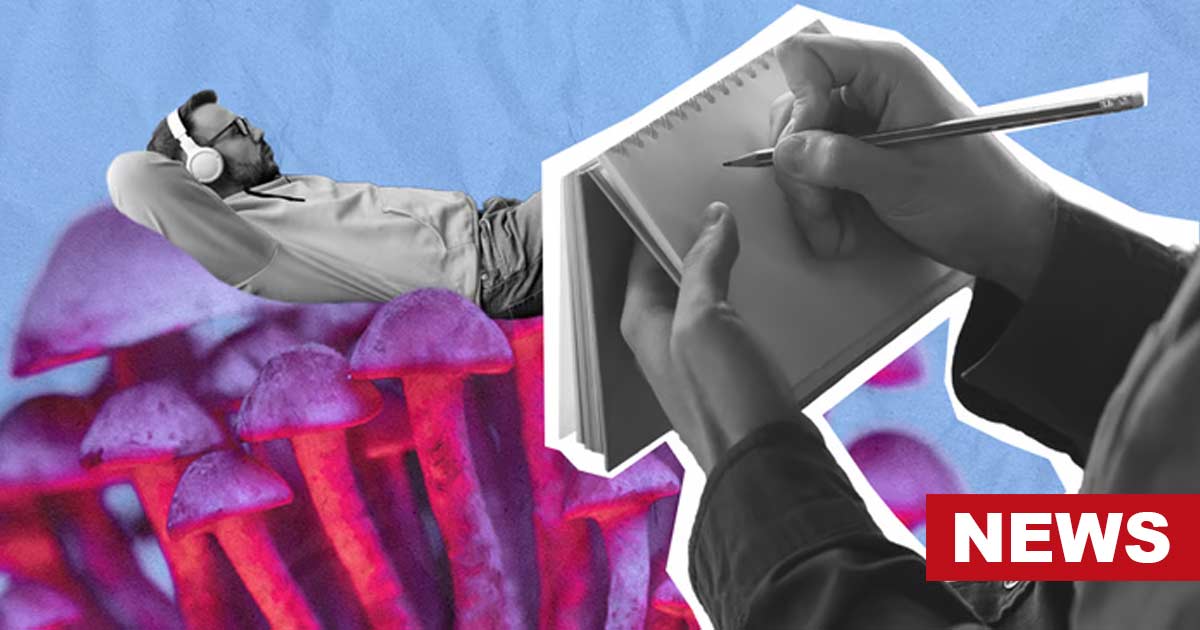- Studies claim psychedelic therapies show promise in treating severe cases of mental illnesses like depression and PTSD.
- However, the new and ambiguous nature of psychedelic treatment poses doubts about its long-term efficacy.
In 2023, Australia became the first country in the world to legalize psychedelic therapies for treatment-resistant depression and PTSD.
Its Therapeutic Goods Administration (TGA) authorized mental health professionals (MHPs) to prescribe MDMA (commonly known as ecstasy or molly) and psilocybin (magic mushrooms) for psychedelic treatment. While many experts have expressed hope for this highly anticipated treatment option, others have voiced concerns.
Professor Colleen Loo, a clinical psychiatrist and researcher at UNSW Sydney and the Black Dog Institute, told in an exclusive interview with India Education: “My concern is that psychedelic treatment isn’t going to be rolled out in a way that represents good clinical practice and that is in the patient’s best interest. It’s not just that these substances were illegal. They were associated with party culture and the drug scene, regarded with some suspicion and fear by clinicians and the public.”
However, other experts (including Dr. Loo) have acknowledged the benefits of psychedelic therapies for frequently relapsing mental health disorders that last a lifetime.
The Mental Health Benefits Of Psychedelic-Usage
Research on psilocybin-assisted therapy has demonstrated significant improvements in treatment-resistant depression, with participants reporting reduced depressive symptoms and increased well-being even months after the treatment sessions.
Similarly, MDMA-assisted therapy has shown promising outcomes in addressing PTSD, allowing individuals to process traumatic experiences with heightened empathy and reduced fear.
The mechanisms through which psychedelics exert their therapeutic effects are complex and not yet fully understood. However, researchers believe that these substances can alter brain activity, promoting brain cell growth and neuroplasticity, as well as creating new neural connections that break “hardwired” trauma patterns.
They can also induce a mystical or spiritual experience that can lead to increased self-reflection, personal insight, and a sense of interconnectedness. These experiences may help individuals gain a new perspective on their lives, break free from maladaptive patterns of thinking, and experience profound emotional healing.
Availing Psychedelic Therapies With Caution
While the potential mental health benefits of psychedelics are intriguing, it is essential to approach their use with caution. Psychedelic substances are classified as illegal drugs in most countries and are not yet approved by regulatory authorities for therapeutic use, except in limited research settings or as part of clinical trials. It is crucial to acknowledge the potential risks associated with their use and to prioritize safety and responsible practices.
Psychedelic therapy should always be conducted under the guidance of trained professionals in a controlled and supportive environment.
The expertise of therapists or facilitators is crucial in ensuring a safe and beneficial experience for individuals seeking psychedelic-assisted therapy. These professionals can provide appropriate screening, preparation, and integration support to maximize the therapeutic benefits and minimize potential risks.
Moreover, not everyone is a suitable candidate for psychedelic therapy. Individuals with a history of severe mental illnesses (such as psychosis or bipolar disorder) may be at higher risk of experiencing adverse reactions to psychedelics.
Therefore, comprehensive assessments of mental health history and careful screening processes are necessary to determine the appropriateness of psychedelic therapy for each individual.
It is important to note that the legalization and regulation of psychedelics for therapeutic use is a complex and evolving topic. Added to it is the costly nature of psychedelic therapies, with some even amounting to more than $10,000 for a treatment course.
Therefore, ongoing research, along with rigorous clinical trials, is central to providing further insights into their safety, efficacy, and potential applications. Additionally, public education and awareness campaigns are necessary to promote responsible and informed discussions around psychedelics and mental health.
Know More About –
Related Articles –
- 8 Legal Psychedelics And Mystical Herbs For Lucid Dreaming
- 7 Ways To Know If Therapy Is Working For You
- PTSD – Here Are 5 Ways To Cope With It

























